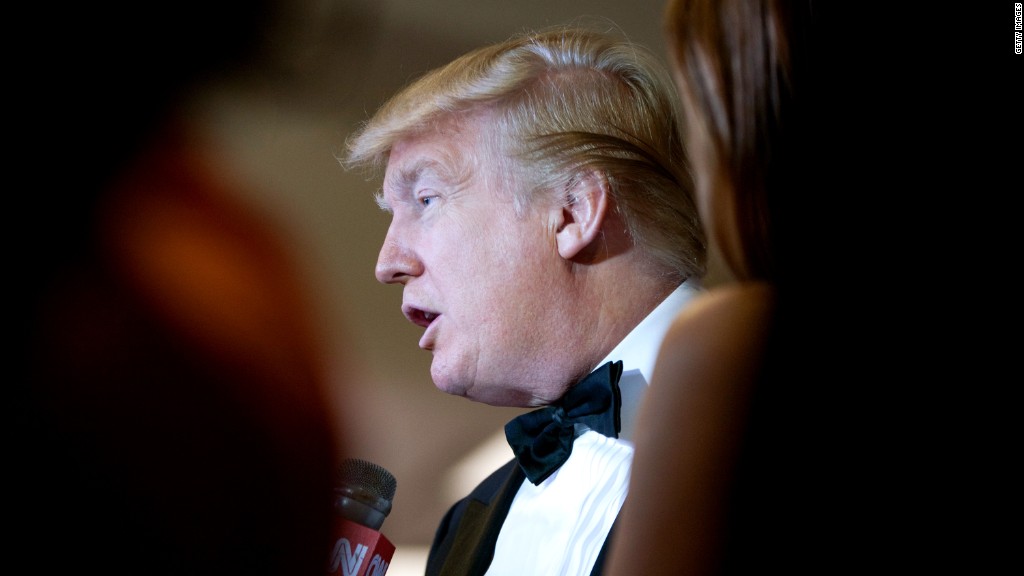
President Trump doesn't have to publicly disclose his tax returns, now or ever.
But some members of Congress can, if they want.
Thanks to a little-known and rarely used provision in the law, either the chairman of the House Ways and Means Committee, the Senate Finance Committee or the Joint Committee on Taxation may request anyone's tax returns to examine -- including the president's -- from the secretary of the Treasury.
They wouldn't need to tell anyone that they did so. They could share the returns with their committee members in closed session. And if one of the committees thinks releasing the returns to the House or Senate would further a legitimate committee purpose and be in the public interest, they can do that, too -- without Trump's consent, said George Yin, a former chief of staff at the Joint Committee on Taxation and a professor of law at the University of Virginia.
A release of the tax returns to the full House or Senate effectively would make the documents public.
Last week, Bill Pascrell -- a Democratic member of the House Ways and Means Committee -- sent a letter to Chairman Kevin Brady requesting that he ask for Trump's tax returns from the past 10 years.
As of Tuesday, Brady had not responded, according to his office and Pascrell's.
Justifying a public interest in Trump's tax returns might not be difficult.
The president's business holdings are vast, and the steps he's taken so far to eliminate potential conflicts of interest have not satisfied ethics experts and others.
In his letter to Brady, Pascrell cited the Foreign Emoluments Clause in the Constitution, which prohibits federal office holders from accepting any "present, emolument, office or title" from a foreign state.
"President Trump is now governing while also owning a business with international investments. The Constitution faces unprecedented threats due to this arrangement," Pascrell wrote. "I believe the powerful Ways and Means Committee has the responsibility to ... ensure proper oversight of the executive branch by requesting a review of President Trump's tax returns."
What would lawmakers learn from them? "There's potentially a wealth of information the committees could find in his returns," Yin said.
Trump's personal returns would list the income he's earned from the many partnerships and corporations in which he's a key player. And a tax-writing committee chairman could also request the returns of those business entities to get more information about how their income was made and their web of domestic and international business ties.
Another reason a tax-writing committee might want to review Trump's returns is to help ensure that the IRS is not giving Trump a pass just because he's president, and instead is auditing his returns as it would any other citizen's.
The chance of a Republican-controlled Congress choosing to make a Trump's tax returns public, without his consent no less, seems very remote at the moment. But if circumstances change, it might become an option lawmakers consider.
One such change might come if Democrats win back the House or Senate in the mid-term elections next year. Or if lawmakers have reason to believe the president broke a law.
During the last years of the Nixon administration, it came out that President Nixon had taken big deductions for donating his official papers to the National Archive. But the timing and valuation of the donations raised a lot of questions.
Nixon invited the Joint Committee on Taxation to review his returns despite an earlier audit by the IRS. The JCT found that Nixon owed far more money than he paid. And it chose to publicly release an extensive report that included Nixon's tax information, Yin noted in a Washington Post opinion piece.


